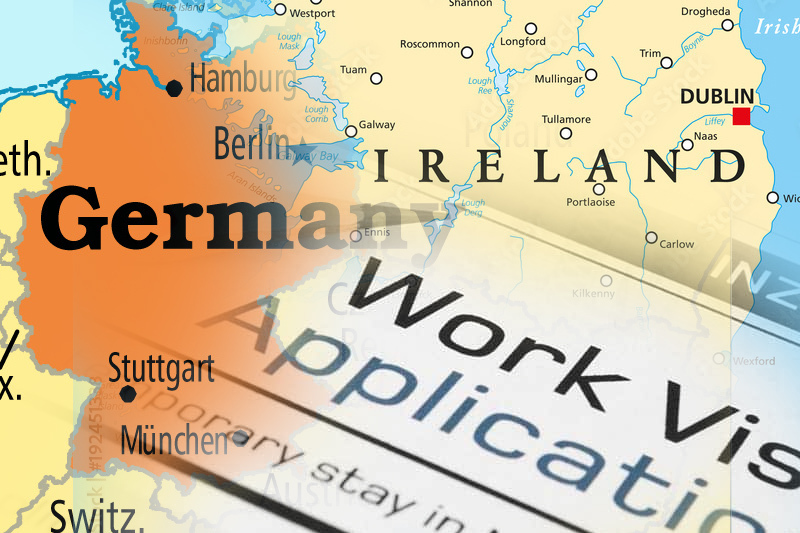

here are the easiest countries to get a work visa
EU – Europe is well known for being a difficult place for non-European citizens trying to move in search of work. Some EU countries – tiny states like Liechtenstein and the Vatican, for example – have some of the strictest immigration rules in the world.
But countries across Europe are currently facing acute labor shortages, which has caused major disruptions in recent months. Many are now making it easier for migrant workers to move to the EU for work.
Here is a list of countries where it is easiest to get a work visa for non-European citizens.
Germany recently launched a new “opportunity map” to attract skilled migrant workers. Using a points system, Chancenkarte allows job seekers in Germany to move to the country before they find a job or internship, instead of having to apply from abroad.
Applicants must be under the age of 35, have sufficient language skills to live in the country and have at least 3 years of professional experience on their resume. They also need to prove that they can afford living expenses while they are in Germany before they can find a job.
Denmark is also in dire need of workers in all industries and is looking for specialists from other countries who could step in and help. Skilled workers are needed from areas such as science and engineering, lawyers and medical professionals, from teachers and IT specialists to electricians, blacksmiths and locksmiths.
A complete list of required specialists is available in the country’s Positive List for People with Higher Education and the Positive List for Skilled Jobs published by the Danish Agency for International Recruitment and Integration (SIRI). The lists were introduced on July 1 and will be valid until December 31.
If you are offered a job in the same industry that is on two lists, you can apply for a residence and work permit in Denmark. Your residence permit will be valid for as long as you are employed if your contract is shorter than four years, or for four years if it is longer.
If you are applying for a job from abroad, you will be granted a residence permit valid for one month prior to starting work to allow you to settle in the country, provided you can prove that you can support yourself during this period.
Getting a work visa in Ireland is relatively easy and there are several options here, from short to long term. While you must already have found a job before you can apply, the country is actively looking for migrant workers to fill vacancies in sectors that are experiencing significant shortages.
The country has two main work visas: the Critical Skills Employment Permit for highly skilled workers and the General Employment Permit. The former covers occupations considered critical to the growth of the Irish economy, while the latter covers all types of work. Once these permits are obtained, it is relatively easy for people to apply for permanent residence in the country.
Ireland also offers a working holiday visa to citizens of Argentina, Australia, Canada, Chile, Hong Kong, Japan, New Zealand, South Korea, Taiwan and the United States aged 18 to 30 or 35. Under this visa, migrant workers can stay in the country for up to 12 months, with the exception of Canadians, who can stay for up to 24 months.
The Communications Ministry of Indonesia seeks to develop a public endowment fund, which would strengthen independent journalism across the country…
Radio Free Asia (RFA), a U.S. government-funded news network that broadcasts in nine Asian languages, has virtually fired everyone in…
The Trump government revealed its intent in action to consider layoffs on a grand scale, under which agencies of the…
The Trump administration has launched a sweeping initiative to monitor around 450,000 unaccompanied migrant children who were placed during the…
During the May half-term Gatwick Airport could experience delays because workers from two different groups plan to strike about pension…
A serious injury at a construction site has netted a 49-year-old union worker a $5 million settlement. The attorneys Kenneth…
This website uses cookies.
Read More